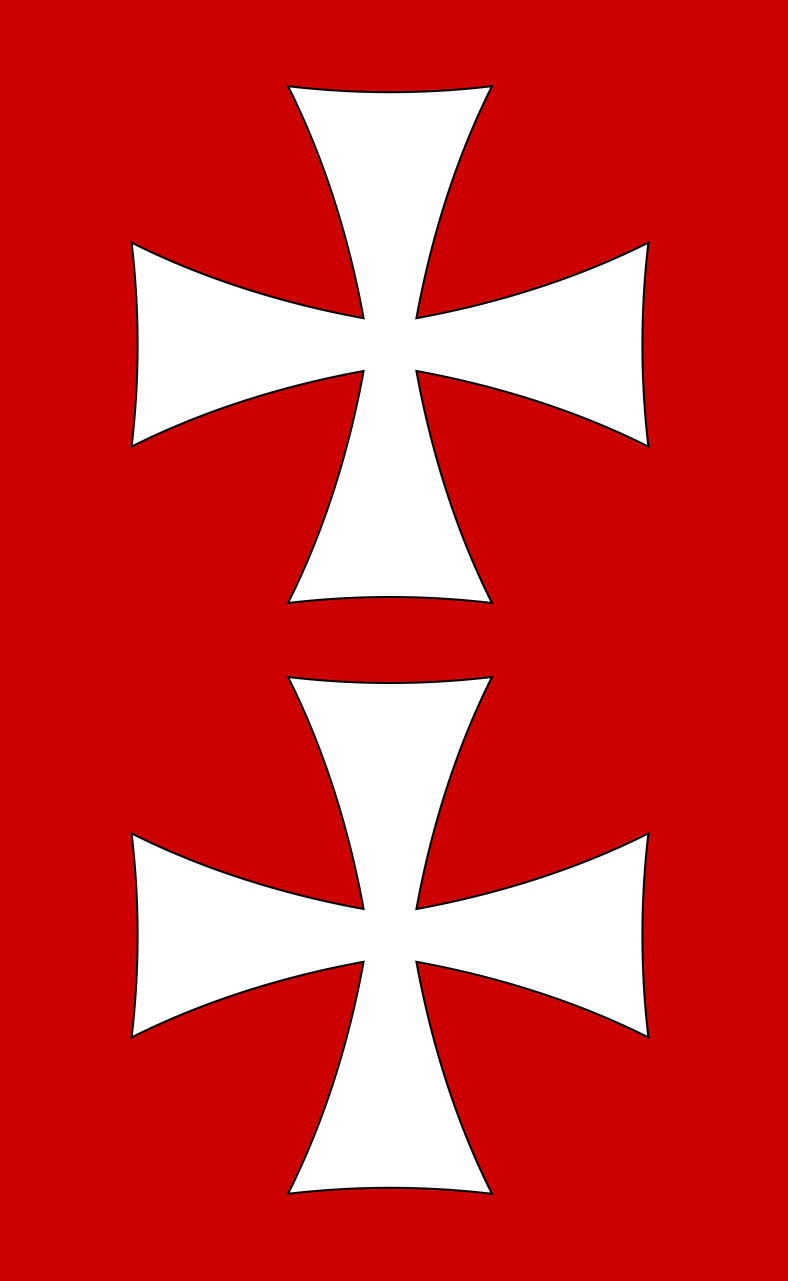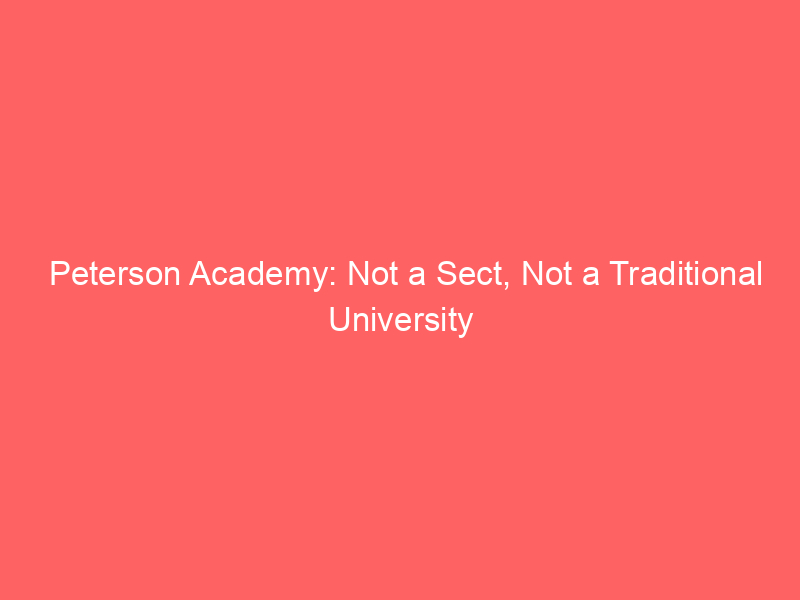Exploring the unique online platform founded by Jordan Peterson and Mikhaila Fuller, its offerings, and its place in the modern educational landscape.
41+ Sources
- 1.Defining Peterson Academy: Beyond the Labels
- 2.Curriculum and Course Offerings: A Humanities Focus
- 3.The Value Proposition and Target Audience
- 4.The Path to the Academy: Founding and Vision
- 5.A Closer Look at Course Structure and Cost
- 6.Comparative Overview: Peterson Academy vs. Traditional Education
- 7.FAQ: Peterson Academy Explained
- 8.Conclusion
- 9.Recommended Further Exploration
- 10.Referenced Search Results
- Peterson Academy is fundamentally an online educational platform, not a sect, despite some public perception or criticism.
- It operates as an unaccredited institution, meaning it does not issue recognized degrees or college credits.
- While it offers diverse courses, a strong emphasis is placed on humanities, philosophy, and psychology, with limited coverage of hard sciences and no traditional STEM programs currently offered.
Peterson Academy, launched in 2024 by Jordan Peterson and his daughter Mikhaila Fuller, presents itself as a distinctive online learning environment aiming to provide an alternative to conventional higher education. It has garnered considerable attention, leading to questions about its nature, its academic rigor, and its value proposition. This analysis delves into its structure, course offerings, accreditation status, and overall educational philosophy to provide a comprehensive understanding.
Defining Peterson Academy: Beyond the Labels
The core of the user’s query revolves around whether Peterson Academy can be classified as a “sect” or a “university,” particularly given its lack of accreditation and its specific course focus. The consensus among available information firmly establishes that it is neither.
Dispelling the “Sect” Misconception
There is no credible evidence to suggest Peterson Academy operates as a sect or a religious organization. A sect typically involves extreme or unusual beliefs, isolation from society, and often a charismatic leader with absolute authority. Peterson Academy, in contrast, functions as a subscription-based online platform providing educational content. While it is associated with Jordan Peterson, a prominent public intellectual whose views are often debated, the academy itself is structured as an educational media platform offering lectures by various instructors. Critical discussions about its pedagogical methods or content do not equate to it being a sect.
Why It’s Not a Traditional University
The distinction between Peterson Academy and a traditional university is crucial. Key differentiating factors include:
Unaccredited Status
Perhaps the most significant difference is Peterson Academy’s unaccredited status. Accreditation is a formal process by which an educational institution or program is evaluated and recognized as maintaining certain standards of quality. Traditional universities undergo rigorous accreditation processes, which ensure that their degrees are recognized by employers, other academic institutions, and professional bodies. Peterson Academy, by its own admission, is not accredited, and while it may pursue accreditation in the future, it has also indicated an unwillingness to compromise its educational approach to meet typical accreditation criteria. This means:
- It cannot grant recognized degrees.
- Its certifications upon course completion may not be universally accepted as equivalents to college credits or degrees.
- Students needing formal credentials for employment or further academic pursuits would likely find the offerings insufficient.
Absence of Traditional University Structure
Traditional universities typically feature a structured academic calendar with semesters, graded assignments, laboratory work for science courses, proctored exams, and direct instructor feedback. Peterson Academy, however, offers pre-recorded lecture series, often 6-9 hours in length, with optional quizzes. It lacks the conventional semester structure, comprehensive lab components, or the formal, graded assessments that characterize university-level education. While it offers a community and social space for members, this does not replicate the full academic and social ecosystem of a university campus.
Curriculum and Course Offerings: A Humanities Focus
Peterson Academy’s curriculum is largely centered around subjects like psychology, philosophy, humanities, and personal development. This aligns with Jordan Peterson’s intellectual interests and public discourse.
Emphasis on Specific Disciplines
The academy currently offers over 61 eight-hour courses, with new content added monthly. These courses span areas such as:
- Psychology (e.g., “The Psychology of Self,” “Intro to Psychology”)
- Philosophy (e.g., “Modern Philosophy Review”)
- Economics and Finance
- Humanities and History
- Health and Wellness (e.g., “Brain Metabolism and Mental Health”)
- Music composition (melody, rhythm, texture, form)
The lectures are noted for their high production value and engaging presentation, aiming to provide what the founders describe as a “classical liberal education” or “education devoid of ideology.”
Limited Hard Science Coverage
A significant point raised in the query, and echoed in the analysis, is the limited or absent coverage of “hard sciences” within Peterson Academy’s current offerings. There is no evidence of comprehensive courses in physics, chemistry, biology, or engineering that would be comparable to a traditional university’s STEM curriculum. While there are mentions of science/health-related topics like neuroscience and brain metabolism, these do not constitute a full STEM pathway with labs, advanced mathematical sequences, or accredited science programs. The academy has indicated that STEM courses are “coming soon,” but as of now, this area remains underdeveloped compared to its humanities and social science offerings.
The Value Proposition and Target Audience
Peterson Academy positions itself as an alternative for a specific segment of learners, rather than a direct competitor to accredited universities for all students.

This radar chart illustrates a comparative analysis between Peterson Academy and a Traditional University across key educational dimensions, based on synthesized information. Peterson Academy shows lower scores in areas like Accreditation and Traditional Degree Value due to its unaccredited status and non-degree-granting model, as well as in Hard Science Curriculum, reflecting its current humanities focus. Conversely, Traditional Universities consistently score higher in these aspects. This visual comparison highlights the distinct educational pathways offered by each institution.
Who Benefits Most
Peterson Academy appears to be well-suited for:
- Self-directed learners: Individuals who are motivated to learn for personal enrichment rather than for formal credentials.
- Lifelong learners: Those seeking to expand their knowledge in specific areas without the commitment or cost of a full university program.
- Individuals interested in Peterson-adjacent topics: Students keen on psychology, philosophy, history, and personal development from a classical liberal perspective.
- Cost-conscious learners: With an annual fee of $499 for access to a growing library of courses, it offers a more affordable alternative compared to traditional university tuition.
Who It’s Not For
Conversely, Peterson Academy is likely not the ideal choice for:
- Students requiring accredited credentials: Anyone needing a recognized degree, transferable college credits, or certifications accepted by employers for professional advancement.
- Aspiring STEM professionals: Individuals seeking rigorous hard-science pathways with labs, extensive problem sets, and industry-recognized qualifications.
- Learners who thrive on structured academic environments: Those who require regular graded assignments, direct instructor feedback, and the comprehensive support systems of a traditional university.
The academy’s high-production-value lectures and intellectually driven community are often praised, with some students reporting renewed intellectual engagement and reduced anxiety compared to prior university experiences. However, criticisms have also emerged regarding an unclear course structure, inconsistent quiz quality, and a perceived lack of proper pedagogical methods.
The Path to the Academy: Founding and Vision
Understanding the origins and stated vision of Peterson Academy helps frame its current offerings and future aspirations.
mindmap
root[“Peterson Academy: Core Concepts”]
id1[“Launch: 2024”]
id2[“Founders: #quot;Jordan Peterson#quot; & #quot;Mikhaila Fuller#quot;”]
id3[“Nature: #quot;Online Education Platform#quot;”]
id4[“Not a Sect”]
id5[“Not a Traditional University”]
id6[“Accreditation: #quot;Unaccredited#quot;”]
id7[“No Recognized Degrees”]
id8[“Pursuing, But Not Compromising Standards”]
id9[“Course Offerings: #quot;Humanities-Focused#quot;”]
id10[“Psychology”]
id11[“Philosophy”]
id12[“Economics”]
id13[“Personal Development”]
id14[“Limited Hard Sciences (Future Plans)”]
id15[“Format: #quot;Pre-recorded Lectures#quot;”]
id16[“High Production Value”]
id17[“Optional Quizzes”]
id18[“Community Access”]
id19[“Cost: #quot;$499 Annual Fee#quot;”]
id20[“Target Audience: #quot;Self-directed Learners#quot;”]
id21[“Lifelong Learners”]
id22[“Seeking Alternative to Traditional Higher Ed”]

This mindmap visually summarizes the key characteristics and concepts associated with Peterson Academy, including its founding, nature, accreditation status, course focus, format, cost, and target audience. It clearly distinguishes the academy from a sect or a traditional university by highlighting its online, unaccredited, and humanities-centric approach.
The Genesis and Purpose
Jordan Peterson and Mikhaila Fuller launched Peterson Academy with the explicit goal of disrupting what they perceive as an increasingly inaccessible and ideologically driven traditional higher education system. Their vision centers on providing high-quality, engaging, and affordable education. Peterson Academy aims to teach “how to think, not what to think,” fostering critical thinking and intellectual growth within an online community.
Future Outlook and Challenges
While the academy has expressed ambitions for growth, including the possibility of future accreditation and expanded course offerings (such as STEM subjects), these remain long-term goals. The challenge of gaining accreditation without altering its core educational philosophy, which may conflict with certain accreditation requirements (e.g., commitments to diversity, equity, and inclusion), is a significant hurdle. Nevertheless, the platform continues to expand its course catalog and student base, appealing to a niche audience seeking a particular type of educational experience.

This bar chart compares the perceived strengths of Peterson Academy against those of a Traditional University across several key educational dimensions. Peterson Academy scores highly in Accessibility & Cost and Community Engagement, reflecting its online model and affordable annual fee. In contrast, Traditional Universities excel in Formal Recognition and Career Pathways due to their accredited degrees and established networks. This chart highlights where each educational model offers distinct advantages to different types of learners.
A Closer Look at Course Structure and Cost
Understanding the practical aspects of Peterson Academy’s operation, including its course format and pricing, provides further clarity.
Format and Delivery
The courses are delivered as pre-recorded, studio-produced lecture series. Each course typically runs for 6-9 hours, broken down into manageable segments. This format allows for flexible, self-paced learning, distinguishing it from the live, synchronous instruction often found in traditional university settings. While optional quizzes are available, the academy does not implement a conventional grading system or proctored examinations that are standard in accredited institutions.
The Financial Model
Peterson Academy operates on an annual subscription model. The fee is generally around $499, which grants full access to the entire current and future course library, optional testing, and the community platform. This fixed annual cost positions it as a significantly more affordable option than most traditional university tuition fees, aligning with its goal of democratizing access to education.
Comparative Overview: Peterson Academy vs. Traditional Education
To summarize the core distinctions, the following table provides a comparative overview:
| Feature | Peterson Academy | Traditional University |
|---|---|---|
| Nature | Online education platform (not a sect) | Accredited higher education institution |
| Accreditation | Unaccredited; does not grant recognized degrees | Accredited; grants recognized degrees and credits |
| Course Delivery | Pre-recorded, self-paced lectures with optional quizzes | Structured semesters, live instruction, graded assignments, exams, labs |
| Curriculum Focus | Humanities, philosophy, psychology, personal development; limited hard sciences | Broad range of disciplines, including comprehensive STEM programs |
| Credentials | Certificates of completion (not formal degrees/credits) | Diplomas, degrees (e.g., Bachelor’s, Master’s, PhD) |
| Cost | Annual subscription (approx. $499) | Significant tuition fees, often with additional costs |
| Target Audience | Self-directed, lifelong learners; personal enrichment; specific intellectual interests | Students seeking formal qualifications, career advancement, comprehensive academic experience |
| Career Recognition | Limited or inconsistent without formal accreditation | Widely recognized by employers and other academic institutions |
The most relevant video regarding Peterson Academy’s accreditation status and vision is “Peterson Academy Comment On Accreditation” featuring Jordan Peterson himself. This video provides direct insight into his perspective on why accreditation is important for the academy, the challenges involved, and how they plan to approach it without compromising their educational standards. It sheds light on the internal considerations regarding formal recognition and the balance between traditional academic structures and their independent approach.
Jordan Peterson discusses the path to accreditation for Peterson Academy, offering direct insights into their strategy and challenges.
FAQ: Peterson Academy Explained
Is Peterson Academy accredited?
No, Peterson Academy is currently unaccredited. This means it cannot issue recognized degrees or college credits that are typically accepted by employers or other educational institutions.
What kind of courses does Peterson Academy offer?
Peterson Academy primarily offers courses in humanities, philosophy, psychology, economics, and personal development. There is limited coverage of hard sciences at present, though future expansion into STEM fields has been mentioned.
Is Peterson Academy a religious sect?
No, there is no evidence to suggest Peterson Academy is a religious sect. It is an online educational platform that provides lectures and community features, not a religious organization.
How much does Peterson Academy cost?
The cost for Peterson Academy is an annual subscription fee, typically around $499, which provides access to its entire course library and community features.
Can I get a degree from Peterson Academy?
No, you cannot get a formal, recognized degree from Peterson Academy. Due to its unaccredited status, it only offers certificates of completion for its courses.
Conclusion
Peterson Academy is an innovative online education platform that unequivocally stands as neither a sect nor a traditional university. Its unaccredited status means it cannot confer recognized degrees, and its curriculum primarily focuses on humanities, psychology, and philosophy, with minimal current offerings in hard sciences. It serves as a valuable resource for self-directed learners interested in specific intellectual pursuits and a more affordable, flexible educational experience. However, for those seeking formal academic credentials, comprehensive STEM education, or a traditional university environment, accredited institutions remain the appropriate path.
Recommended Further Exploration
- [How does online education accreditation impact career opportunities?](/?query=How does online education accreditation impact career opportunities%3F)
- [Comparison of traditional vs. alternative higher education models](/?query=Comparison of traditional vs. alternative higher education models)
- [The role of humanities in modern skill development](/?query=The role of humanities in modern skill development)
- [Future trends in unaccredited online learning platforms](/?query=Future trends in unaccredited online learning platforms)
Referenced Search Results
en.wikipedia.org
technologyforlearners.com
Peterson Academy Review: A New Model for Higher Education? – technologyforlearners.com
modernadult.substack.com
Peterson Academy Review: A New Alternative to College? – modernadult.substack.com
petersonacademy.com
petersonacademy.com
Peterson Academy Official Website
topview.ai
slate.com
Jordan Peterson Academy: How I got expelled from the right-wing “university.” – slate.com
reddit.com
r/JordanPeterson on Reddit: Peterson academy
static.tnc.news
Exclusive: Mikhaila Fuller on her “massive plans” for Peterson … – tnc.news
youtube.com
Peterson Academy Comment On Accreditation – YouTube
x.com
reddit.com
Hate to say it: Peterson Academy looks grifty right now. – Reddit
jordanbpeterson.com
nrla.org.uk
Membership Accreditation Scheme Training Academy | NRLA
petersonacademy.com
Brain Metabolism and Mental Health | Peterson Academy
westpoint.edu
Institutional Accreditation and Assessment | U.S. Military Academy West Point
petersonpianoacademy.com
Level 10 – Peterson Piano Academy
quora.com
What do you think of Jordan Peterson Academy? Is this the future of …
thecryptoacademy.io
petersonpianoacademy.com
Homepage – Peterson Piano Academy
reddit.com
r/JordanPeterson on Reddit: Peterson academy
linkedin.com
Introduction to Certifications | Peterson Academy
petersonacademy.com
How to Plan Your Life | Peterson Academy
en.wikipedia.org
deseret.com
Peterson Academy: Why did Jordan Peterson open an online school? – Deseret News
en.wikipedia.org
x.com
Peterson Academy (@petersonacademy) / X
medium.com
Jordan Peterson Academy Review: Is It Worth It Not Sugar Coated? | by IMHO Reviews | Medium
reddit.com
r/JordanPeterson on Reddit: Thoughts on Peterson University?
en.wikipedia.org
opensourcetemple.com
A critique of Peterson Academy Where Aristotle Meets Big Bird …
en.wikipedia.org
desmog.com
petersonacademy.com
The Great Composers | Peterson Academy
petersontechnologies.applytojob.com
Technical Writer – Peterson Technologies – Career Page
tnc.news
Exclusive: Mikhaila Fuller on her “massive plans” for Peterson Academy | True North
en.wikipedia.org
en.wikipedia.org
coconote.app
linkedin.com
Robbie Snellman – Algebra Trailer
reddit.com
Is Peterson academy worth fort someone that already has a degree?
petersonacademy.com
The Psychology of Self | Peterson Academy
petersons.com
College Information – Peterson’s – The Real Guide to Colleges and …
peterson-handwriting.com
Peterson Directed Handwriting. Learn Cursive the Easy, Precise Way.
Last updated September 28, 2025



